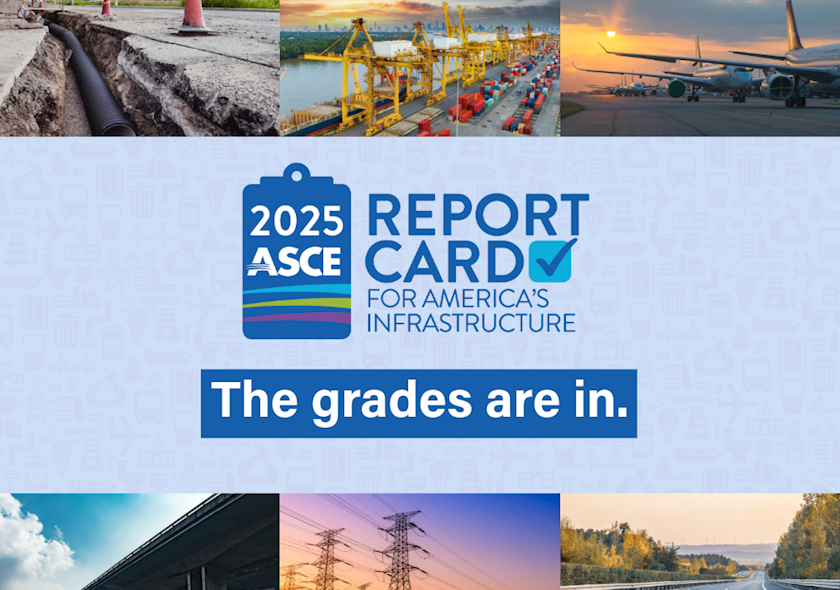Advocacy
With over 150,000 members, ASCE has a powerful voice on Capitol Hill and in statehouses across the country. Be the first to know about legislation that matters – become a Key Contact today.
Advocating for the nation's infrastructure and the civil engineering profession is a top priority for ASCE. Find out how you, your section, your branch, or your region can engage in policy decisions at all levels of government and educate policymakers about the importance of infrastructure investment, as well as how civil engineers are protecting public health and safety.
Key Contacts advocating for ASCE
messages sent to policymakers from ASCE members last year
state report cards produced


See how ASCE is advocating for you
ASCE has over 170 policy statements identifying the Society's position on the issues most important to the civil engineering community.
View ASCE's public policy statementsASCE frequently shares the Society's positions and priorities to Congress and the administration via letters, comments, and testimony.
View ASCE's federal communicationsASCE often shares our views with media outlets or responds to policy and legislative matters.
View ASCE's news releasesASCE has a strong network of members who are actively engaging in legislation and influencing public policy.
Learn how to become an ASCE advocate2025 priority issues
ASCE's annual priority issues are determined with member engagement. In an effort to narrow the focus and to better deploy our government relations resources, the Public Policy and Practice Committee has identified the following priorities for 2025:
- Climate and hazards mitigation (codes and standards, adaptation, pre-disaster mitigation, etc.)
- Cybersecurity (keeping critical infrastructure systems secure)
- Energy grid (generation, distribution, and transmission, etc.)
- Environmental stewardship (solid waste, hazardous waste)
- Transportation (aviation, bridges, ports, rail, roads, and transit)
- Water infrastructure (drinking water, wastewater, and stormwater)
- Water resources (dams, inland waterways, levees)
- Workforce and education (STEM, expanding the leadership pipeline)
Priority issues are listed in alphabetical order. The fact that an issue is not included does not constrain ASCE action if supported by ASCE policy.
ASCE’s public policy outreach is guided by four Principles for Infrastructure Investment, which are:
- Investments must provide substantial, long-term benefits to the public and the economy.
- The cost of a project over its entire life span—including designing, building, operating, and maintaining the infrastructure—must be taken into account.
- Projects should be built sustainably and resiliently.
- Federal investment should leverage state, local, and private investment, not replace these other critical sources of infrastructure funding.
ASCE acknowledges the importance of social justice in the study and practice of civil engineering by incorporating its tenets into its Code of Ethics, which calls on all members to “acknowledge the diverse historical, social, and cultural needs of the community, and incorporate these considerations in their work,” and to “consider and balance societal, environmental, and economic impacts, along with opportunities for improvement, in their work.”
Contact ASCE Government Relations staff
Government Relations
Office
- 202-789-7850
- [email protected]
- 25 Massachusetts Ave., NW, Suite 500
- Washington, DC 20001

